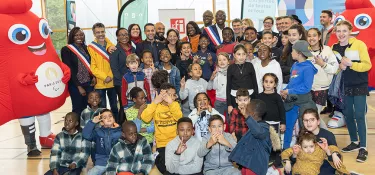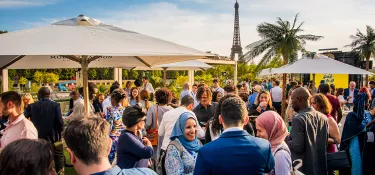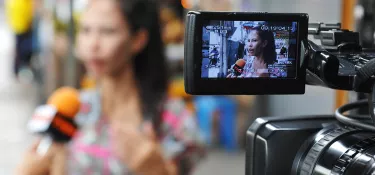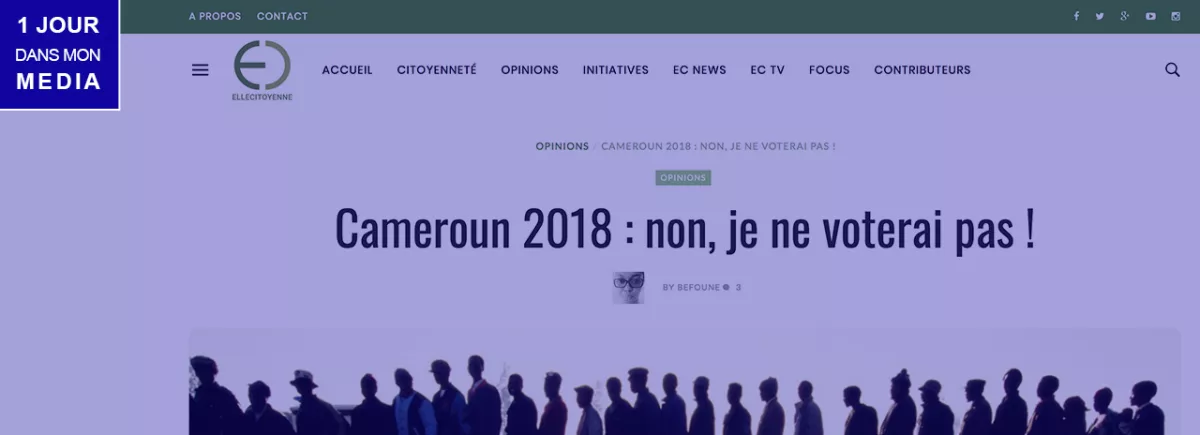
Elle Citoyenne: making the voice of African citizens heard
Related project
Citizen ConnectionsOne day in my media organisation is a series of weekly reports illustrating the daily lives of people who work in media organisations across Africa, the Arab world and Southeast Asia, supported by CFI.
This week, we have an interview with Anne-Marie Befoune, founder of the blog
Elle Citoyenne.
Elle Citoyenne was launched on 29 November 2015. Designed as a blog, the initial aim of its founder Anne-Marie Befoune was to document her research on citizen participation in Africa and share her take on socio-political events within the sub-region. Since then, the blog has evolved and acquired influence. "Very quickly, other people wanted to use it to express their views. Today, the outlet has around thirty contributors across Africa. In addition to my role as a contributor, I have also become its Chief Editor", explains Anne-Marie.
A platform for citizen issues
Because she is very active and present on several fronts (
blogging, activism, online editorial work for several media outlets, columnist for RFI and in charge of online training for YALI) Anne-Marie is hard put to describe exactly what she does for a living: "I'm a translator by training, and although translation is no longer my main activity, I still do some freelance work."
Much of her time is devoted to
Elle Citoyenne a website which, rather than aiming to publish the very latest news, focuses instead on topics of general interest, humorous columns and investigations analysing the socio-political environment.
Another aim is to highlight successful African citizen initiatives with a view to gauging to what extent they can be reproduced on a large scale for the well-being of all.
In her view, the internet was the easiest way to achieve this goal and make her voice heard. Anne-Marie admits to spending a lot of time on social media, especially Twitter: "The platform enables you to know what's happening in real time and what the hot topics are in every country. As for citizen journalism, every internet user is now a potential source of reliable news – you could sum it up as who saw what and wants to inform the majority."
At first, Anne-Marie wanted the emphasis to be on citizens' duties, which are "all too often overlooked in favour of rights", as she explains. The initiative was a great success, and the articles published on the site generated lively debates on social media. Readers gradually began to bring their own personal touch to the project, with some even becoming contributors: "They shaped the direction of the outlet according to their needs. The aim was to have a media outlet that took an interest in them, in ordinary people, rather than to publish scoops", she explains.

No business model
Elle Citoyenne does not generate a profit – a deliberate choice on its part: "We don't want any advertising on the website because readers don't like to be interrupted and distracted by an advertising insert that bears no relevance to the story they're reading. Grants are not a sustainable business model, so we didn't dwell on the question", notes Anne-Marie Befoune. The outlet has been self-financed from the start. The thirty contributors from West, East, Central and Southern Africa are all volunteers. An average of three articles are published on Elle Citoyenne every week. The way it works is simple. Anyone wanting to contribute a story must send their piece to the following email address: elle@ellecitoyenne.com.
Articles are proofread, with advanced checking of the dates and names mentioned in the texts. Hyperlinks are sometimes added to enable readers to explore topics further in their quest for information. The revised text is then sent back to the author for approval prior to publication: "Disrespectful comments are systematically removed from texts", the young woman explains.
Because of her busy schedule, one of the difficulties Anne-Marie faces is lack of time: "There are just so many stories I want to cover, so many citizen initiatives to introduce and so many active people to make known… I can't do everything at once, so I just have to grin and bear it", she says resignedly.
The young blogger makes it a point of honour not to publish fake or incomplete news stories: "Sometimes I might buy three or four books before writing an article of a thousand words or so. I want to make sure I know what I'm talking about before proffering an opinion on a subject, whatever it might be. If I don't know, I don't say anything – there's no shame in saying you don't know", she says with conviction.
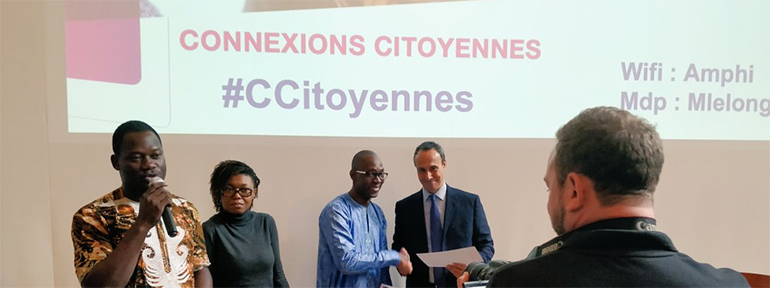
Combining citizen journalism with traditional journalism through social media
Anne-Marie believes social media have enabled citizen journalism to flourish: "Thanks to social media, anyone can criticise fake news, with supporting evidence to boot." Such diversity of information is welcome because "media outlets are becoming increasingly less reliable, especially in Cameroon, where certain topics, such as the Anglophone crisis, are largely avoided for fear of reprisals", she reveals. I learned a lot during that year, especially while I was immersed in rural communities.
By comparison, in Senegal, where the young woman, who is originally from Cameroon, has been based for several years, "there is more freedom of expression. Journalists here don't hesitate to say what they think", she holds.
Starting in September 2016, Anne-Marie took part in CFI's
Citizen Connections project for a year: "Citizen Connections was one of the richest experiences for the citizen participation enthusiast that I am. For a year, fifteen project promoters were supported by CFI as part of the development of Digital Citizen projects. I learned a lot during that year, especially while I was immersed in rural communities."
Thanks to her project
Tout en deux minutes [Everything in Two Minutes], Anne-Marie was among the three winners and was awarded a cheque worth eight thousand euros.
